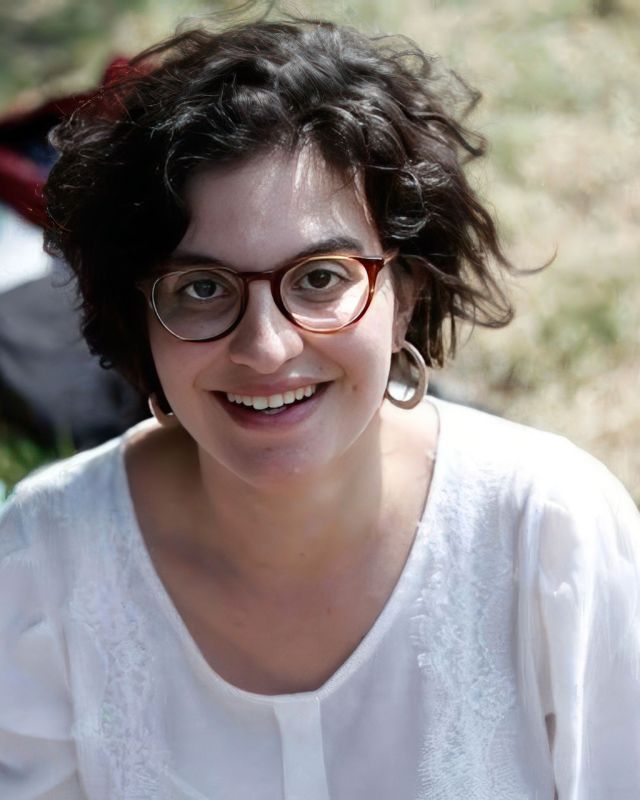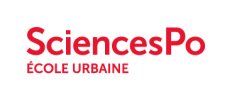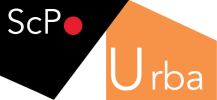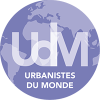Portrait

Caroline Megglé - STU 2008 - Freelance Journalist
Posted on | Alumni Portrait
In Situ had the pleasure of speaking with Caroline Megglé, who graduated from STU in 2008, about her rather atypical career. A passionate jack-of-all-trades, sensitive to social and cultural issues, she is never short of projects. When she's not writing articles, she's helping out in an association for autistic children, training in music therapy or coming up with new ideas!
From the literary preparatory school to the STU master's degree
After a literary preparation (hypokhâgne then khâgne) with a history-geography option at the lycée Fénelon, Caroline pursued a 3rd year of a geography degree at Paris I. Not very attracted by teaching, she realised that geography is the subject that has the most tangible implications, especially in the field of territorial and urban strategies. When she started the master's programme, she thought she was going to go into regional planning or urbanism. Admitted to the STU master's programme, she opened up to new perspectives. On leaving the course, she had a positive assessment but still felt lost as to her professional future. She therefore decided to take part in an experience that would immerse her in the real world and contrast with the theoretical lessons.
Social issues from all angles: associative, private and public...
Her interest in social work led her to spend several months in Milan, in an association that organises cultural and leisure activities for disabled adults, as part of a European voluntary service. She then discovered the activity of social support. This confrontation with the field was beneficial to her. On her return, she had a short experience (4 months) at the SOS Group, a social enterprise whose objective is to put economic efficiency at the service of the general interest. She then participated in the elaboration and drafting of projects calling for private funding, particularly in the fields of childhood and integration.
She was then hired at ODAS, the National Observatory of Social Action, where she stayed for three years. There she worked alongside Cyprien Avenel, a teacher in urban sociology at the STU master's degree, who was then Director of Research at ODAS. ODAS is an association that leads a network of local authorities, municipalities and departments, but also social welfare organisations and associations, and that conducts a reflection on social cohesion policies. This takes different forms: working groups, studies, action research, etc. Caroline is in charge of studies on the financial and strategic aspects of departmental social action. This allows her to have a detailed vision of social policies in a global way (finance, strategy, governance) and by sector (child protection, support for the elderly and disabled, integration, etc.). As part of her missions, Caroline does a lot of fieldwork in pilot areas.
She also works for the Apriles agency (Agence des pratiques et initiatives locales) - which depends on ODAS - and whose role is to identify and promote good practices in social development via fact sheets. While her experience with ODAS has opened her eyes to the regulatory and financial constraints on decentralisation and the degree of complexity they create, her survey work for Apriles has helped her understand the importance of disseminating actions - sometimes very simple ones - that work and can have a real impact on local life.
A European tour of young people involved in social and cultural initiatives, a turning point on the road to becoming a journalist
In 2013, Caroline decided to carry out a more personal project. She set out to meet committed young people in Europe, without a sponsor, and travelled for a few months to some fifteen countries. There she interviewed young adults involved in projects of general interest, in various forms - associations, social enterprises, etc. Also on the lookout for educational innovation and the inclusion of civic commitment in education, she sought to understand the impact - educational, civic, etc. - of these experiences on the lives of the young people she met. This project was promoted in a blog and in two media: Le Journal de l'Action Sociale (JAS), a monthly magazine targeting local authorities, and the bimonthly magazine Socialter dedicated to social and environmental innovations.
This is how she became a freelance journalist for these different titles. She then worked full time for a year for Localtis, a daily newspaper published by the Caisse des Dépôts that deciphers news for local authorities. Her favourite themes are youth, education, social and solidarity economy, citizenship and participative democracy. In these areas, current events are often less pressing than in other fields, so she can sometimes keep a subject for two or three weeks, look at it in greater depth and get an overall view, without spending months on it, which she likes a lot. However, she feels that the analytical work done at Localtis for the local authorities could be better highlighted.
Today, although Localtis is the main media for which she works, she has become independent again. She contributes to other media, including Le Journal de l'Action Sociale - on a more occasional basis but with more in-depth fieldwork - and a new online media, Gynger, which deals with childhood and education. For her, who is interested in many subjects, being a freelancer allows her to have a diversified activity, to sometimes focus on a particular issue and to carry out other projects.
Moreover, Caroline notes that since the beginning of her career, she has been in a position to observe, analyse and promote. It is a role that she enjoys, but she is now thinking of getting involved in the implementation or support of a project.
Caroline's advice
- Read Localtis; it's a good tool for following the news, dissected specifically through the prism of local public action, yet few students know about it. It was very useful for Caroline in her work at ODAS.
- Build up your areas of expertise little by little, themes as well as know-how, without being afraid of not having a linear career path, nor of becoming stuck in the idea of a particular profession. Caroline has often wondered whether she was on the right track: she reassures us that although the Urban School's masters courses allow you to move towards very different professions, the themes are always linked, which allows you to bounce back.
- Do not hesitate to carry out personal projects, setting up an association or business.
- Continue to be curious, read a lot and not only in your favourite field, meet people... It is by communicating different worlds that ideas emerge. It can also be an opportunity to discover a new professional world.
Portrait of Sarah Zouheir - Urban Policy 2010 - Advisor to the Cabinet of the Chairman of the Management Board of the Société du Grand Paris
Posted on June 02, 2016
In a sunny garden in May, In Situ met the dynamic Sarah Zouheir, who graduated from the Urban Policy double degree (STU-LSE) in 2010. If her profile is marked…
Frank Zschiegner - STU 2006 - Head of the economic development team at the agglomeration community of Versailles Grand Parc
Posted on April 10, 2016
In Situ met Frank Zschiegner in 2013, he was in charge of economic development for the city of Vélizy-Villacoublay: "Frank has been working in Vélizy for al…
 English
English  Français
Français 




